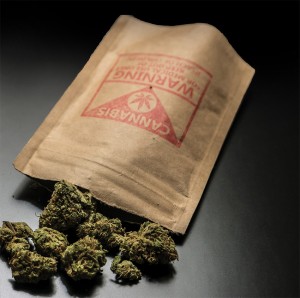Convenience meets cannabis?

Whether or not one agrees with legalization, everyone can agree that when it happens, the systems that the provinces put in place should promote the goals of legalization that, if realized, will be positive. Through its legislation, the federal government aims to move cannabis from the illegal market into a regulated system in which products can be taxed and where quality standards and controls protect citizens.
At least three things will be necessary to realize these goals. It’s already well-understood that if the prices of legal products are too high it will create an opportunity for illegal markets to persist.
Secondly, legal products should come with readily identifiable, branded packaging. This will make them harder to counterfeit while providing the public with a guarantee of product standards of quality and safety.
The third necessity is a convenient distribution system for legal products. Think about it. If prohibition is ended for consumers, but the options to legally purchase products are too limited, this will create the conditions for a boom in the supply of illegal products through the underground market. This is precisely what the province of Ontario is inviting through its recent proposal to limit supply to 150 government-owned sites by 2020. That distribution model will be vastly inadequate for Ontario and it will ensure that the illegal market thrives as the most convenient option for many consumers. Today, it’s easy to buy cannabis: If we make it hard to buy from legal sellers tomorrow, people will just continue to buy it elsewhere.
In other words Convenience stores are served by a distribution system that supports the legal sale of a variety of con- trolled goods, such as tobacco, and are well-positioned to adapt to include distribution of cannabis products as well. The stringent controls already in place to secure the collection of provincial and federal taxes on such products can accommodate any new products requiring similar controls — be they provincial or interprovincial.
Moreover, as found through a recent labour market study funded by the province of British Columbia, working in a convenience store, especially one with a gas station, requires a more complex set of skills and more responsibility than is commonly thought.

Employees are not simply cashiers or gas attendants. Their tasks are varied, complex and demand
a high degree of accountability for compliance with government regulations regarding responsible retail- ing, health and safety, food and beverage preparation, and environmental protection. The framework for socially responsible retailing of cannabis is already well established.
Convenience stores are therefore well-prepared to handle the variety of quality-controlled products that will soon be entering the legal market. They successfully handle a variety of age-restricted products including alcohol in underserved or remote areas, and Health Canada studies confirms the strength of their commitment to age-testing.
They are perfectly capable of safely handling legal cannabis products subject to the regulations federal and provincial governments put in place to control their sale. And the existing producers of medicinal cannabis are already working to develop carefully branded recreational products containing consumer information to protect public safety.
The conditions for a successful legal market are in place. Those conditions include convenience stores. It’s up to provincial governments to ensure these conditions prevail.
